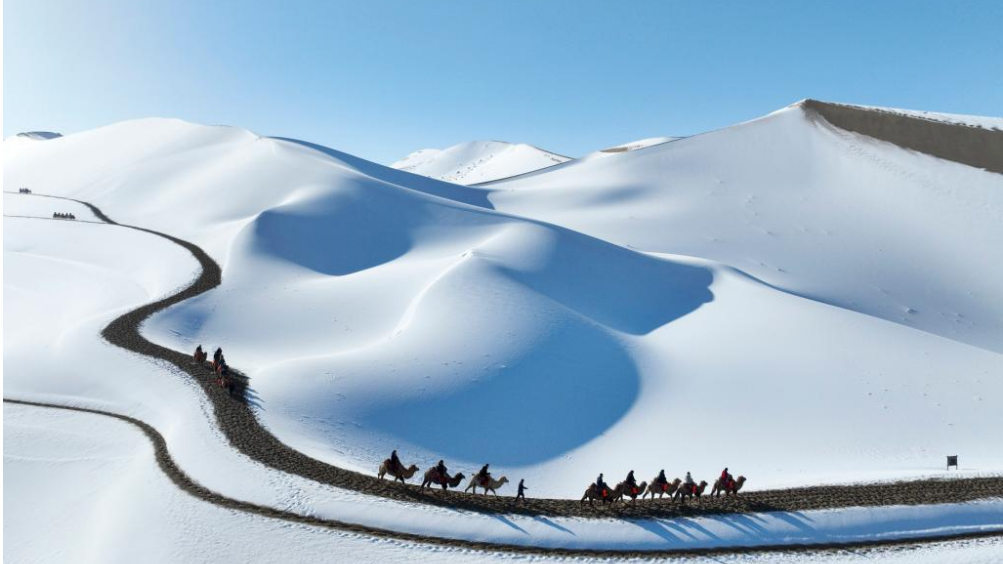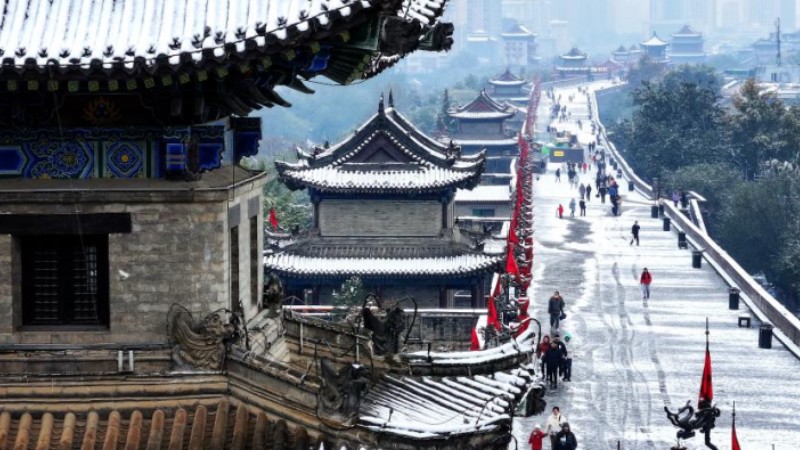Explainer: APEC's way forward: a historical perspective
SAN FRANCISCO, Nov. 16 (Xinhua) -- The formation of the Asia-Pacific Economic Cooperation (APEC) in 1989 is of enormous significance for the world.
About three decades ago, the direction of humanity in the post-Cold War era was the question facing Asia-Pacific leaders.
In a remarkable departure from the confrontational narratives that defined the decades before, leaders in the region discarded the shackles of bloc confrontation and the zero-sum mentality.
Their collective commitment since then has led to an era of unprecedented economic cooperation and integration, culminating in the vision of a dynamic, harmonious, and prosperous Asia-Pacific community.
As the world has entered a new period of turbulence and change, leaders in the region must now address a new question.
In a written speech to the APEC CEO Summit here on Thursday, Chinese President Xi Jinping raised the pressing inquiry that resonates with many: where will Asia-Pacific cooperation be headed in the next 30 years?
APEC's success lies not just in lofty goals but in tangible achievements. In the past years, it has facilitated the reduction of tariffs, harmonization of regulations, and promotion of structural reforms, fostering an environment conducive to economic cooperation.
Over the past three decades, the Asia-Pacific has cut its average tariff rate from 17 percent to 5 percent, and contributed 70 percent of global economic growth.
During this period of time, per capita income in the Asia-Pacific has more than quadrupled, and one billion people have been lifted out of poverty.
As APEC continues its journey forward, its past experiences can well guide its future endeavors.
When it was first created, members with different histories and political systems had sought common ground, laying a foundation that would later redefine the very fabric of regional economic cooperation.
Seeking common ground while shelving differences is the best practice of Asia-Pacific cooperation, Xi noted on Thursday in his address to the APEC CEO Summit.
Economic development and political systems vary widely among APEC economies, said Atsushi Koketsu, emeritus professor at Yamaguchi University of Japan.
Only by thoroughly examining each member's development conditions, appreciating each other, creating mutual trust, and promoting cooperation can the region make considerable economic growth through the principle of seeking common ground while preserving differences, he said.
Openness and inclusiveness are the defining feature of Asia-Pacific cooperation, Xi noted in his speech, adding that development for all is the overarching goal of Asia-Pacific cooperation.
"APEC is useful because it is an inclusive arrangement," said James Laurenceson, director of the Australia-China Relations Institute.
"It includes all the big players ... as opposed to some other arrangements which are more exclusive, such as the Indo-Pacific Economic Framework (IPEF)," Laurenceson said.
As part of U.S. "Indo-Pacific strategy," the IPEF, together with the so-called "Chip 4 Alliance," constitutes a "parallel system" of supply chain alliances that exclude China.
"The mood of the region is that (deliberately carves out China) is not a particularly helpful approach," said Laurenceson, stressing that the Asia-Pacific economies want to see major players of the region focus on inclusive arrangements rather than exclusive ones.
Development is an eternal pursuit in our region, Xi said on Thursday. "We have stayed focused on development and continually deepened economic and technical cooperation, thus strengthening the ability of developing members to achieve self-development."
The development of the region requires the concerted efforts of all parties, and APEC should foster close cooperation and easy interactions between economies, said Kiyoyuki Seguchi, research director at Japan's Canon Institute for Global Studies.
In his speech, Xi also urged other APEC members to "remain committed to open regionalism, and steadfastly advance the building of a Free Trade Area of the Asia-Pacific."
"The Asia-Pacific is a pluralistic space, with 'non-Asians' very much an integral participant in the region," said Sourabh Gupta, senior fellow at the Washington-based Institute for China-America Studies.
"The 'open regionalism' that complements multilateral rules and practices" is also a feature of Asian-style liberalization, Gupta said.
It is critical for regional member economies "to discuss the importance of renewing their commitment to free trade, and to prevent the geopolitical issues from affecting an unimpeded flow of commerce, goods, and people across these member economies," said Lucio Blanco Pitlo, research fellow at the Philippine think tank Asia-Pacific Pathways to Progress Foundation.
"It is very important to discuss these relevant issues today, because they would affect the future of the region," Pitlo said.
Photos
Related Stories
- Xi, Biden conclude 'strategic, historic and directional' summit
- World looks forward to seeing 'San Francisco vision' translated into reality: Global Times editorial
- Xi stresses Japan must ensure political foundation of China-Japan relations
- Interview: U.S. must see China's rise as positive force for global growth, says expert
- Xi says China, Brunei should jointly safeguard peace, stability in South China Sea
Copyright © 2023 People's Daily Online. All Rights Reserved.









